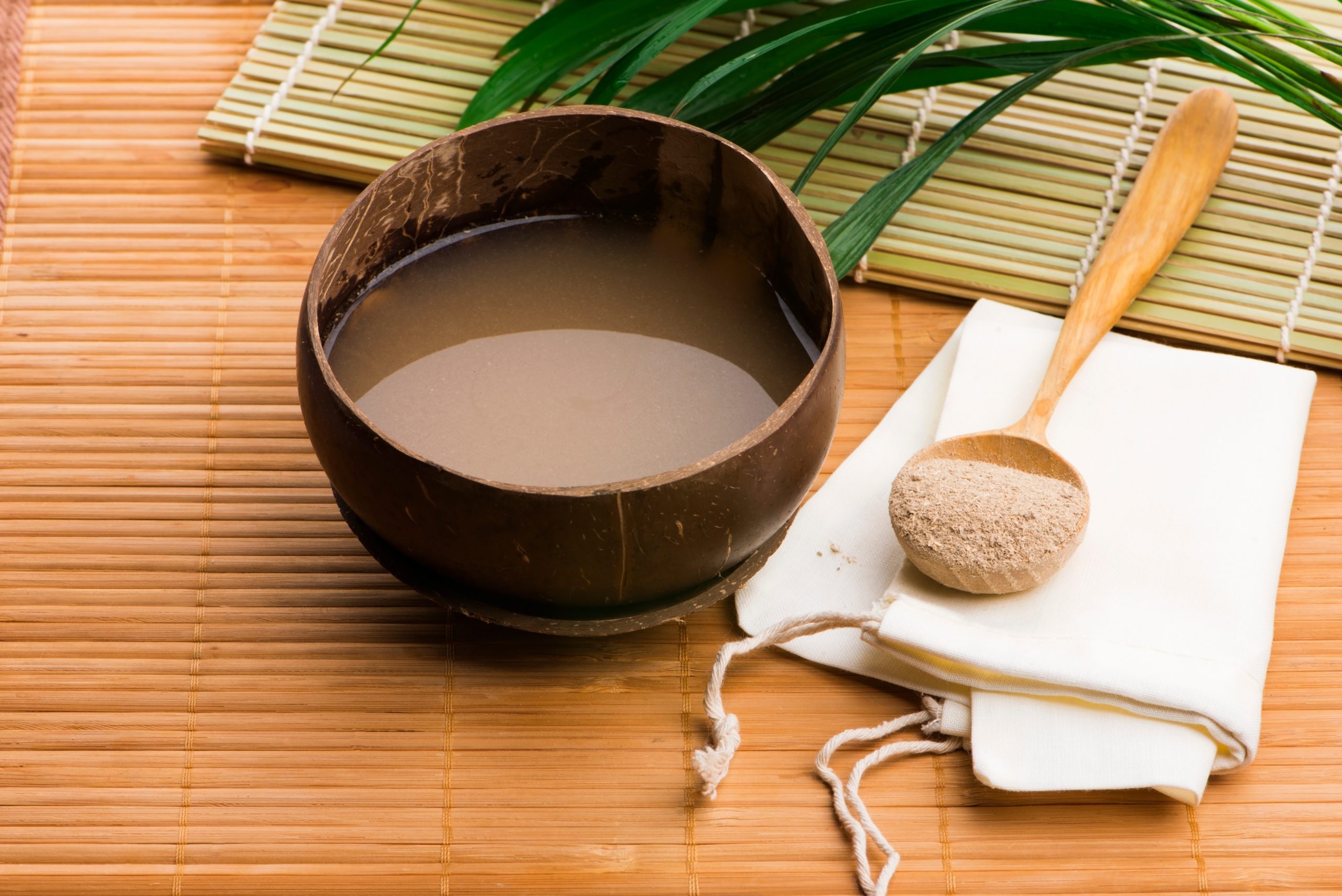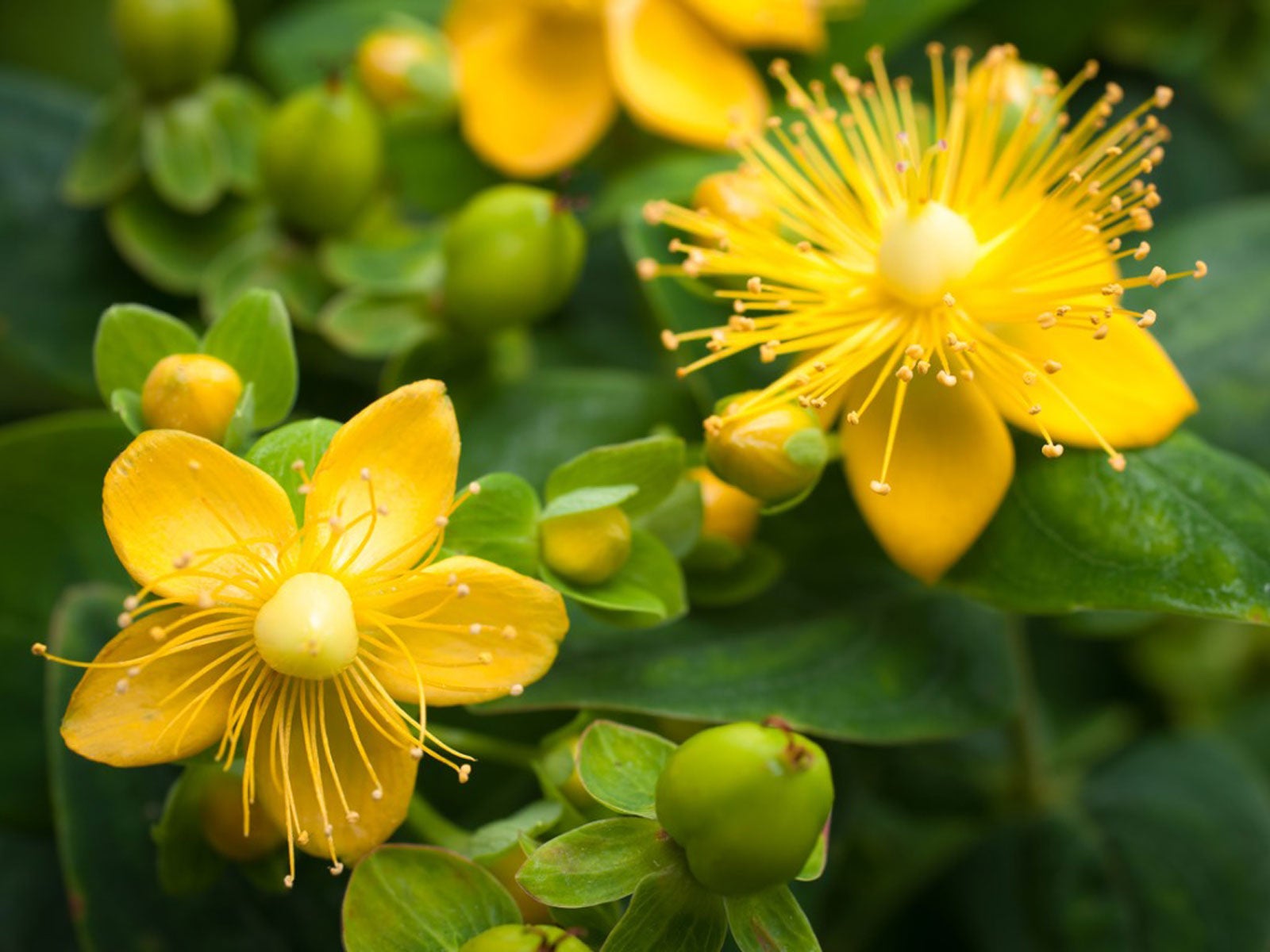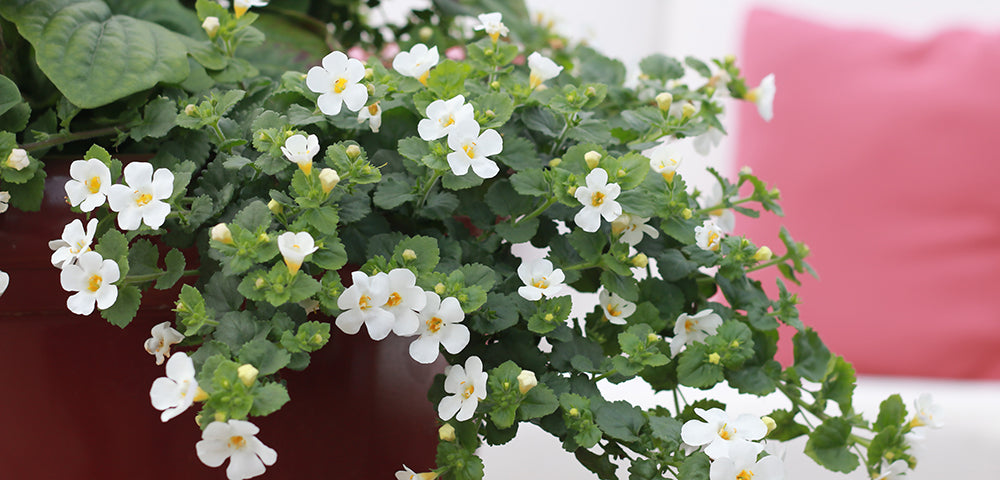Anxiety is a widespread and challenging mental health issue that affects millions of people worldwide. While conventional treatments like medication and therapy can be effective, more and more individuals are turning to natural remedies for relief. Herbal supplements are gaining popularity for their ability to soothe the mind and calm the nerves. This piece explores the best herbal supplements for anxiety, outlining their benefits and ways to use them to promote relaxation and reduce stress. Learn about their benefits, dosages, and potential interactions to find the best herbal supplements for your anxiety.
Understand Anxiety Disorder
Anxiety Disorder refers to a mental health issue characterised by persistent and intense feelings of apprehension, unease, and dread that disrupt everyday life, relationships, and overall well-being. The disorders include Generalized Anxiety Disorder, Panic Disorder, Social Anxiety Disorder, Phobias, Obsessive-Compulsive Disorder, and Post-Traumatic Stress Disorder. Symptoms involve excessive concern, agitation, irritability, difficulties with focus, disruptions in sleep, and physical indications such as rapid heartbeat and trembling. Anxiety Disorder may stem from a combination of genetic factors, brain chemistry, personal experiences, and preexisting medical conditions. Fortunately, this can be managed through medications, psychotherapy, lifestyle changes, and support groups, allowing individuals to address their symptoms and improve their quality of life.
Herbal Supplements for Anxiety: Are they effective?
Herbal supplements have demonstrated potential in alleviating anxiety symptoms, with specific studies suggesting they may be comparable in effectiveness to prescription medications. Ashwagandha has been found to reduce stress and anxiety by 40-50%, while passionflower has been shown to decrease anxiety by 30-40%. Kava has been shown to decrease anxiety by 50-60%, presenting it as a potentially effective choice. Valerian root and chamomile have been shown to enhance sleep quality and encourage relaxation, which may be advantageous for those experiencing sleep-related anxiety. Although the evidence appears encouraging, it is crucial to seek advice from a healthcare professional before starting any supplements, verify their quality and purity, and adhere to the suggested dosages. Furthermore, herbal supplements might not be effective for everyone, and it is essential to consult with a healthcare professional to discuss a comprehensive treatment plan.
How to Take Herbal Supplements for Anxiety?
1. Before taking any herbal supplements, it’s essential to seek advice from a healthcare professional, especially if you have underlying medical conditions or are taking medications.
2. It is crucial to select a reputable brand for the supplements, ensuring they adhere to Good Manufacturing Practices (GMPs) and undergo third-party testing.
3. Adhere to the recommended dosage on the label or as your healthcare professional advises.
4. If you are new to herbal supplements, starting with a low dose is a good idea to gauge your tolerance.
5. Taking the supplement consistently, ideally simultaneously, each day is recommended.
6. For a holistic approach to your health, consider combining herbal supplements with other therapies such as meditation, exercise, or talk therapy. This can enhance the supplements’ benefits and empower you to take control of your health.
7. Keeping a journal or tracking your symptoms can help monitor progress and allow for adjustments to your supplement regimen as needed.
8. Remember, patience is vital. Allow 2-6 weeks for the supplement to take effect. Your body needs time to adjust and respond to it.
9. Optionally, consider cycling supplements every 6-8 weeks to maintain their effectiveness.
10. Consult your healthcare professional to ensure a safe transition when discontinuing use.
10 Best Herbal Supplements for Anxiety Symptoms and Stress
Passionflower

Passionflower (Passiflora incarnata) is an herbal supplement that is utilised for addressing anxiety, insomnia, and seizures. Below are the guidelines for its usage:
Benefits:
- Anxiety and stress
- Insomnia and sleep disorders
- Seizures and epilepsy
- Muscle spasms and pain
- ADHD and restlessness
Preparations:
- Tea: Immerse 1-2 teaspoons of dried Passionflower in boiling water. Passionflower: Afterward, strain and consume 3-4 times daily.
- Capsules: Ingest 250-500 mg capsules 3-4 times daily.
- Tincture: Consume 20-30 drops of passionflower tincture in water 3-4 times daily.
- Infusion: Steep 1-2 teaspoons of dried Passionflower in hot water for 5-7 Passionflowerrwards, strain, and consume 3-4 times daily.
Dosage:
- Anxiety: Consume 250-500 mg (capsules) or 20-30 drops (tincture) 3-4 times daily.
- Insomnia: Take 500-1000 mg (capsules) or 30-60 drops (tincture) 30 minutes before bed.
- Seizures: Seek advice from a healthcare professional for precise dosage information.
Precautions:
- Before using Passionflower, it is essential to cPassionflowerthcare professional, particularly if you have underlying medical conditions or are taking medications.
- Refrain from using Passionflower while pregnant or breastfeeding. Potential interactions with sedatives, antidepressants, and blood thinners should be taken into consideration.
- Due to the possibility of drowsiness, refrain from operating heavy machinery or driving.
Side Effects:
- Drowsiness
- Dizziness
- Confusion
- Stomach upset
- Allergic reactions (rare)
German Chamomile
:max_bytes(150000):strip_icc()/how-to-grow-chamomile-1402627-02-crop-9b5069a36d234b089b4a8d51be686493.jpg)
German chamomile (Matricaria chamomilla) is a natural remedy recognised for its soothing properties and potential advantages for managing stress, sleep disturbances, and gastrointestinal issues. Here’s an overview:
Benefits:
- Eases anxiety and stress
- Enhances sleep quality
- Assists digestion (calms upset stomach, irritable bowel syndrome)
- Exhibits anti-inflammatory effects
- Alleviates menstrual cramps and PMS symptoms
Preparations:
- Tea: Infuse 1-2 teaspoons of dried German chamomile in boiling water for 5-7 minutes. Strain and consume 3-4 times daily.
- Capsules: Consume 250-500 mg capsules 3-4 times daily.
- Essential oil: Utilize in aromatherapy or apply externally (diluted) for relaxation and skin concerns.
Dosage:
- Anxiety and insomnia: 250-500 mg (capsules) or 1-2 cups of tea 3-4 times daily.
- Digestive issues: 1-2 cups of tea after meals.
Precautions:
- Seek advice from a healthcare provider before using German chamomile, especially if you have allergies or are taking medications.
- It may interact with blood thinners, diabetes medications, and sedatives.
- Avoid usage during pregnancy or lactation.
- It could lead to allergic reactions or drowsiness.
Side Effects:
- Drowsiness
- Allergic reactions (infrequent)
- Stomach upset (infrequent)
Kava

Kava, also known as Piper methysticum, is a natural substance that has been utilised for centuries to alleviate anxiety, stress, and sleep disturbances. Here are some essential details about kava:
Benefits:
- Alleviates anxiety and stress
- Enhances the quality of sleep
- Alleviates muscle tension and pain
- Enhances cognitive function and concentration
- Exhibits anti-inflammatory properties
Preparations:
- Capsules: Consume 250-500 mg capsules 3-4 times daily.
- Tea: Steep 1-2 teaspoons of dried kava root in boiling water for 5-7 minutes.
- Tincture: Consume 20-30 drops mixed in water 3-4 times daily.
- Powder: Blend 1/2 to 1 teaspoon of kava powder with water or juice.
Dosage:
- Anxiety and stress: 250-500 mg (capsules) or 20-30 drops (tincture) 3-4 times daily
- Insomnia: 500-1000 mg (capsules) or 30-60 drops (tincture) 30 minutes before bedtime
Precautions:
- Seek advice from a healthcare professional before using kava, particularly if you have liver issues or are taking medications.
- Avoid kava use during pregnancy or while breastfeeding.
- May interact with sedatives, antidepressants, and blood thinners.
- High doses or prolonged use may lead to liver damage.
Side effects:
- Drowsiness
- Dizziness
- Headaches
- Stomach upset
- Allergic reactions (rare)
Lavender

The following are some vital information to remember about lavender (Lavandula angustifolia), which is a soothing herb utilised for the following purposes:
Benefits:
- Easing anxiety and stress
- Enhancing the quality of sleep
- Alleviating pain and inflammation
- Soothing digestive problems
- Calming skin irritations and wounds
Preparations:
- Essential oil: Suitable for aromatherapy or topical application (when diluted)
- Tea: Steep 1-2 teaspoons of dried lavender in boiling water for 5-7 minutes
- Capsules: Consume 250-500 mg capsules 3-4 times a day
- Tincture: Take 20-30 drops in water 3-4 times a day
Dosage:
- For managing anxiety and insomnia: 250-500 mg (capsules) or 20-30 drops (tincture) 3-4 times a day
- For pain relief: Apply topical essential oil or take 250-500 mg (capsules) 3-4 times a day
Precautions:
- Consult with a healthcare professional before using lavender, particularly if you have allergies or are taking medication.
- Avoid use during pregnancy and breastfeeding.
- It may react with sedatives and blood thinners.
- Rare potential side effects include drowsiness and allergic reactions.
Possible side effects:
- Drowsiness
- Allergic reactions (rare)
- Stomach upset (rare)
Lemon Balm
:max_bytes(150000):strip_icc()/GettyImages-1227581024-caa0a8e35ed1428d8e7b5e514e4c137b.jpg)
Lemon balm, also known as Melissa officinalis, is a soothing herb utilised for:
Benefits:
- Easing anxiety and stress
- Enhancing the quality of sleep
- Alleviating digestive problems
- Providing relief from headaches and migraine
- Elevating mood and cognitive function
Preparations:
- Tea: Brew 1-2 teaspoons of dried lemon balm in boiling water for 5-7 minutes
- Capsules: Consume 250-500 mg capsules 3-4 times per day
- Tincture: Take 20-30 drops in water 3-4 times a day
- Essential oil: Utilize for aromatherapy or apply topically (diluted)
Dosage:
- For anxiety and insomnia: 250-500 mg (capsules) or 20-30 drops (tincture) 3-4 times a day
- For digestive issues: 250-500 mg (capsules) or 20-30 drops (tincture) after meals
Precautions:
- Before using lemon balm, it’s advisable to seek advice from a healthcare professional, especially if you have thyroid concerns or are taking medications
- Avoid using it during pregnancy or while breastfeeding
- It may interact with sedatives and thyroid medications
- In rare cases, it may induce drowsiness or allergic reactions
Side Effects:
- Drowsiness
- Allergic reactions (rare)
- Stomach upset (rare)
St. John’s Wort

St. John’s Wort (Hypericum perforatum) is an herbal supplement utilised for:
Benefits:
- Mild depression and anxiety
- Enhancing mood and emotional well-being
- Alleviating sleep disorders
- Decreasing stress and fatigue
- Facilitating wound healing and addressing skin conditions
Preparations:
- Capsules: Consume 300-1200 mg capsules three times daily
- Tea: Brew 1-2 teaspoons of dried St. John’s Wort in boiling water for 5-7 minutes
- Tincture: Ingest 20-30 drops in water three times a day
- Oil: Apply topically for skin conditions
Dosage:
- Depression and anxiety: 300-1200 mg (capsules) or 20-30 drops (tincture) three times daily
- Sleep disorders: 300-600 mg (capsules) or 20-30 drops (tincture) 30 minutes before bedtime
Precautions:
- Before using St. John’s Wort, consulting a healthcare professional is advised, especially if taking medications or having medical conditions
- Avoid use during pregnancy or while breastfeeding
- Potential interactions with antidepressants, blood thinners, and other medications
- This may lead to heightened sensitivity to sunlight
Side Effects:
- Gastrointestinal upset
- Dizziness
- Headaches
- Occasional allergic reactions
- Increased risk of serotonin syndrome when combined with antidepressants
Ashwagandha

ASHWAGANDHA (Withania somnifera) is a type of adaptogenic herb that is utilised for:
Benefits:
- Easing stress and anxiety
- Enhancing the quality of sleep
- Increasing energy levels and overall vitality
- Improving cognitive function and memory
- Regulating adrenal function and maintaining hormonal balance
Preparations:
- Capsules: Consume 300-500 mg capsules 2-3 times daily
- Tea: Steep 1-2 teaspoons of dried ashwagandha in boiling water for 5-7 minutes
- Tincture: Ingest 20-30 drops in water 2-3 times a day
- Powder: Mix 1/2 to 1 teaspoon of ashwagandha powder with water or juice
Dosage:
- Stress and anxiety: Take 300-500 mg (capsules) or 20-30 drops (tincture) 2-3 times a day
- Sleep: Take 500-1000 mg (capsules) or 30-60 drops (tincture) 30 minutes before bedtime
Precautions:
- It is advisable to consult a healthcare professional before using ashwagandha, especially if you have thyroid issues or are taking medications
- Refrain from using during pregnancy or breastfeeding
- Ashwagandha may interact with sedatives, thyroid medications, and blood thinners
- Potential side effects may include drowsiness, stomach upset, or rare allergic reactions
Side Effects:
- Drowsiness
- Stomach upset
- Rare occurrences of allergic reactions
- Rare occurrences of issues related to the thyroid
Valerian Root

Valerian root, scientifically known as Valeriana officinalis, is a natural plant often utilised for the following purposes:
Benefits:
- Enhancing both the quality and duration of sleep
- Alleviating stress and anxiety
- Easing insomnia and restlessness
- Providing relief for digestive problems
- Easing menstrual cramps and symptoms of premenstrual syndrome (PMS)
Preparations:
- Capsules: Consume 500-1000 mg capsules 30 minutes before going to bed
- Tea: Steep 1-2 teaspoons of dried valerian root in boiling water for 5-7 minutes
- Tincture: Ingest 20-30 drops mixed with water 30 minutes before bedtime
- Essential oil: Utilize for aromatherapy purposes or apply topically after dilution
Dosage:
- For sleep and insomnia: Consume 500-1000 mg (capsules) or 20-30 drops (tincture) 30 minutes before sleeping
- For anxiety and stress: Consume 250-500 mg (capsules) or 10-20 drops (tincture) 2-3 times daily
Precautions:
- Always seek advice from a healthcare professional before using valerian root, especially if you are taking other medications or have liver-related concerns
- Avoid usage during pregnancy or while breastfeeding
- Possible interactions with sedatives, antidepressants, and blood thinners
- This may lead to drowsiness, stomach discomfort, or, in rare cases, allergic reactions
Side effects:
- Drowsiness
- Stomach discomfort
- Allergic reactions (rare)
- Headaches (rare)
Saffron

Saffron (Crocus sativus) is a seasoning crafted from the dried stigmas of the saffron crocus flower, utilised for:
Benefits:
- Mental well-being support: Alleviates stress, uneasiness, and despondency
- Enhancement of sleep: Improves quality and duration of sleep
- Cognitive capabilities: Enhances memory, focus, and concentration
- Assistance with digestion: Eases stomach discomfort, nausea, and cramps
- Antioxidant characteristics: Defends against cell damage and inflammation
Preparations:
- Capsules: Consume 30-50 mg capsules 2-3 times daily
- Tea: Infuse 1/2 teaspoon of saffron threads in boiling water for 5-7 minutes
- Tincture: Ingest 10-20 drops in water 2-3 times a day
- Culinary use: Incorporate saffron threads into food for flavour and nutritional benefits
Dosage:
- Mental well-being and sleep: 30-50 mg (capsules) or 10-20 drops (tincture) 2-3 times daily
- Digestive problems: 10-20 mg (capsules) or 5-10 drops (tincture) after meals
Precautions:
- Seek advice from a healthcare professional before using saffron, particularly if you are taking medication or have underlying medical conditions.
- Refrain from use during pregnancy or when breastfeeding
- It may interact with blood thinners, antidepressants, and blood pressure medications
- Excessive doses may lead to stomach discomfort, vertigo, or allergic responses
Side Effects:
- Minor stomach discomfort
- Vertigo
- Allergic responses (infrequent)
Bacopa

Bacopa (Bacopa monnieri) is a plant utilised in traditional Ayurvedic medicine for:
Benefits:
- Improving brain function and memory
- Speeding up cognitive processing
- Increasing learning and concentration
- Easing anxiety and stress
- Providing neuroprotective effects
Preparations:
- Capsules: Consume 300-400 mg capsules 2-3 times daily
- Tea: Steep 1-2 teaspoons of dried bacopa in boiling water for 5-7 minutes
- Tincture: Consume 20-30 drops in water 2-3 times daily
- Extract: Use 150-250 mg extract 2-3 times daily
Dosage:
- Cognitive function: 300-400 mg (capsules) or 20-30 drops (tincture) 2-3 times daily
- Anxiety and stress: 150-250 mg (extract) or 10-20 drops (tincture) 2-3 times daily
Precautions:
- Seek advice from a healthcare professional before using bacopa, particularly if taking medications or having underlying medical conditions
- Avoid use during pregnancy or breastfeeding
- It may interact with blood thinners, thyroid medications, and sedatives
- May cause stomach upset, nausea, or allergic reactions (infrequently)
Side effects:
- Stomach upset
- Nausea
- Allergic reactions (infrequent)
- Dizziness (infrequent)
Chamomile

Chamomile (Matricaria chamomilla) is a soothing plant utilised for:
Benefits:
- Easing anxiety and stress
- Enhancing the quality of sleep
- Alleviating digestive problems
- Relieving menstrual cramps and symptoms of PMS
- Soothing skin irritations and reducing inflammation
Preparations:
- Tea: Brew 1-2 teaspoons of dried chamomile in boiling water for 5-7 minutes
- Capsules: Consume 250-500 mg capsules 2-3 times per day
- Tincture: Take 20-30 drops in water 2-3 times per day
- Essential oil: Use for aromatherapy or apply topically (diluted)
Dosage:
- Anxiety and sleep: Consume 250-500 mg (capsules) or 20-30 drops (tincture) 2-3 times per day
- Digestive issues: Consume 250-500 mg (capsules) or 20-30 drops (tincture) after meals
Precautions:
- Seek advice from a healthcare professional before using chamomile, particularly if you have allergies or are taking medications
- Avoid use during pregnancy or breastfeeding
- It may interact with blood thinners and sedatives
- It may cause drowsiness, stomach upset, or rare allergic reactions
Side Effects:
- Drowsiness
- Stomach upset
- Rare allergic reactions
- Rare interaction with certain medications
Conclusion
In conclusion, herbal supplements offer a natural and efficient way to manage anxiety and promote relaxation. From passionflower to ashwagandha, these plants have been used for centuries to calm the mind and soothe the nerves. Although they may not replace traditional treatment, they can significantly complement a routine aimed at reducing anxiety. It is crucial to consult with a healthcare professional before adding new supplements to your routine as you embark on your journey toward the tranquillity and peace you deserve.
FAQs
Q: Are herbal supplements safe?
A: Generally, herbal supplements are considered safe if used as directed. Nonetheless, seeking advice from a healthcare professional before starting any supplements is essential.
Q: Can herbal supplements interact with medications?
A: Yes, herbal supplements have the potential to interact with certain medications. It’s essential to seek advice from a healthcare professional before starting any supplements.
Q: How long does it take for herbal supplements to work?
A: The effects of herbal supplements may take some time, typically around 2-6 weeks.
Q: Can herbal supplements cure anxiety?
A: Herbal supplements can assist in managing anxiety symptoms, but they may not cure anxiety. Seeking advice from a healthcare professional for a complete treatment plan is crucial.

